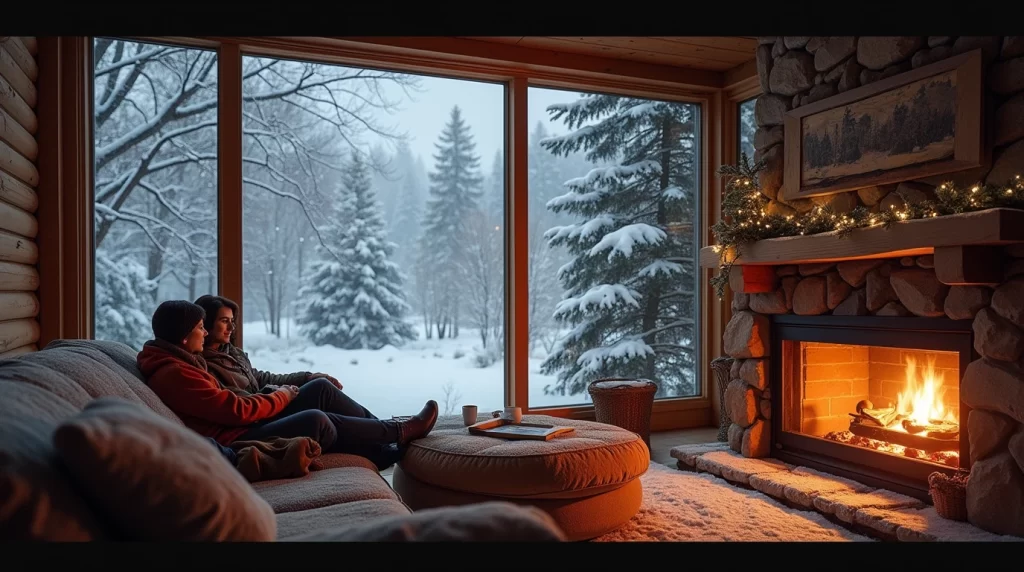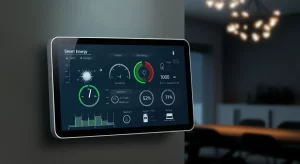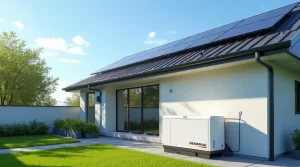Utah winters can bring unpredictable snowfall, icy winds, and sometimes extended power outages. When the lights go out and temperatures drop, a home generator can be the difference between a cozy, fully functional home and a freezing, inconvenient situation. Whether you’re working remotely, relaxing with the family, or trying to keep your fridge running, investing in a backup generator offers unbeatable peace of mind all season long.
1. Why a Home Generator Is Essential in Winter
Uninterrupted Heating
- Stay Warm: Ensure your furnace or heat pump continues operating even if the grid goes down.
- Protect Your Pipes: Maintaining indoor warmth prevents frozen or burst pipes—an expensive and messy problem.
Consistent Hot Water
- Comfort & Hygiene: Who wants a cold shower during a blizzard? Generators power water heaters, so you stay clean and comfortable.
- Laundry and Dishwashing: Keep your appliances running smoothly, whether you need to wash clothes or sanitize dishes.
Appliance Reliability
- Food Preservation: Refrigerators, freezers, and other appliances stay powered, preventing spoilage and saving you money.
- Electronic Devices: From laptops to smartphones, keep working, streaming, and charging without interruption.
Related Resource: Unsure how big of a generator you might need? Check out our post, What Size Generator Is Needed to Power a House? for tips on capacity calculations and panel considerations.
2. How a Home Generator Works During Storms
- Automatic Transfer Switch (ATS)
- Instant Response: When grid power fails, the ATS automatically signals your generator to kick in, ensuring minimal downtime.
- Seamless Power: No scrambling to plug in cords or guess which circuits to energize; the switch handles it all for you.
- Fuel Sources
- Propane or Natural Gas: Common for permanently installed standby generators; these fuels run cleanly and store well.
- Portable Gasoline Generators: Suitable for smaller homes or as a short-term solution, but require frequent refueling.
- Electrical Load Management
- Prioritizing Circuits: You can choose essential circuits (like heating, kitchen, or home office) to stay powered, avoiding overload.
- Upgradable Panels: If your current panel can’t handle the load, an electrician can help with necessary upgrades or dedicated circuits.
3. The Perks of a Winter-Ready Backup Power Plan
Remote Work Confidence
- Never Miss a Deadline: Keep Wi-Fi routers, computers, and communication tools powered even when the neighborhood goes dark.
- Stay Connected: Manage video conferences or client calls without the fear of dropping out mid-sentence.
Entertainment and Comfort
- Stream and Chill: Netflix, gaming consoles, and home theaters operate seamlessly, letting you enjoy cozy movie nights.
- Lights and Security: Keep exterior lights, smart doorbells, and security systems online—crucial for winter safety.
Avoid Emergency Hotel Costs
- Stay Home, Stay Warm: No need to scramble for lodging or risk traveling in poor weather.
- Save Money: Hotels, restaurants, and unexpected travel during outages can rack up costs quickly.
4. Installation and Code Considerations
Professional Assessment
- Load Analysis: A licensed electrician can determine the right generator size, ensuring it meets your heating and appliance demands.
- Code Compliance: Permits, local ordinances, and national electrical codes (e.g., NEC) govern how standby generators connect to your home.
Placement and Fuel Safety
- Distance Requirements: Typically, you must place standby generators a certain distance from windows or doors to prevent carbon monoxide risks.
- Venting and Fuel Storage: Whether you use propane or natural gas, follow manufacturer guidelines and local regulations for safe usage.
Check Out: Electrical Code Updates and Safety Standards: What Homeowners Need to Know to keep your installation fully compliant.
5. Maintenance: The Key to Winter Reliability
- Regular Exercise Runs
- Test the Generator: Run your generator every few weeks or as per the manufacturer’s recommendation to keep its engine lubricated and batteries charged.
- Oil and Filter Changes
- Follow Schedule: Changing oil and filters on time maximizes performance and lifespan.
- Professional Checkups: Annual tune-ups can catch potential problems before the first snow hits.
- Fuel Checks
- Propane/Natural Gas Supply: Monitor levels to avoid running out during extended storms.
- Portable Units: Keep a safe stock of gasoline or diesel and store it according to local fire codes.
More Tips: For a deep dive into generator upkeep, check our Generator Maintenance for Winter guide.
6. FAQs About Winter Generators
- “Do I need a whole-home system or just a portable generator?”
- Whole-home standby systems power critical loads automatically. Portables can be cost-effective but need manual setup. Evaluate your home’s power needs and convenience preferences.
- “Will my generator handle a furnace and other large appliances?”
- Yes, if sized correctly. Many generators can run HVAC systems, fridges, and more simultaneously—just ensure proper load calculations.
- “How do I handle storms that knock out the gas supply?”
- Propane tanks are self-contained, so utility disruptions won’t affect them. Natural gas lines are generally reliable, but discuss backup options with your installer if you’re concerned.
- “Is it safe to run a generator in extreme cold?”
- Absolutely, provided it’s installed outdoors with adequate ventilation and is well-maintained. Some units have cold-weather kits to ensure startup in sub-zero conditions.
Conclusion: Don’t Let Winter Catch You Unprepared
Winter power outages are no match for a home generator—especially when you’ve sized it right, installed it according to code, and kept it in top shape. From ensuring your heating system stays operational to preserving fresh groceries and keeping your home office functional, a standby generator provides unmatched comfort, safety, and peace of mind.
Ready to Harness Reliable Backup Power?
Call Kendrick Electric at (435) 752-1888 or Contact Us Online to discuss a generator solution tailored to your home. Our licensed electricians will guide you through load assessments, fuel type choices, and professional installation—so you can enjoy winter without the worry of sudden blackouts.



